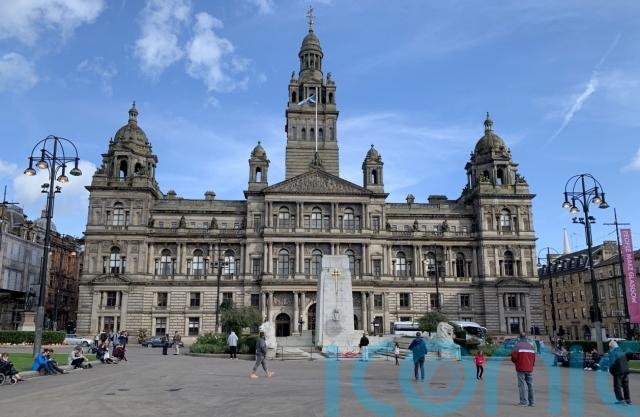
The creation of the Scottish Parliament in 1999 has been a “step backwards” for local democracy, former council chief executives have said as they called for a “new democratic settlement” for local authorities.
A paper written by former chief executive of Stirling Council Keith Yates urges ministers to devolve power from the Scottish Government to local leaders.
Published by think tank Enlighten, the paper warns that while Holyrood “may have been one giant step for Scottish devolution from Westminster”, it has been “one step backwards for local democracy”.
Mr Yates wrote the paper alongside other former chief executives as part of the Mercat Group, an informal network of ex-local authority leaders aiming to revitalise local democracy.

The paper said that since the “highwater mark” of local democracy following reforms in 1975, there has been a “hollowing out” of council powers.
It said the creation of unitary authorities in 1996 and the Scottish Parliament in 1999 resulted in the centralisation of services, with more than 100 non-governmental bodies responsible for the delivery and inspection of services.
It warned Scotland is now one of the most centralised democracies in the world, with councils and communities becoming less involved in shaping their futures.
It also said the Scottish Parliament is perceived by many as “too tribal” and “failing to evolve through collaboration and constructive dialogue”.
The Mercat Group is calling for a “new democratic settlement” after the 2026 Scottish Parliament election aimed at devolving public services to local leaders and embedding local government in a written constitution for Scotland.
Mr Yates said: “There is a broad consensus that local democracy in Scotland is much diminished from the crucial part it played in the development of the nation in the 19th and 20th centuries.
“Most of the life-changing innovations for people and places were designed and built by our municipalities, and Scotland flourished not from government initiatives but from the wellspring of local practical experience.
“Centralisation has brought with it diminished trust. In 1999, trust in the Scottish Parliament stood at 81%; this had dropped to 47% in the 2023 Scottish Social Attitudes Survey.
“The latest Scottish Household Survey found that trust in local councils had declined to 53%. It is surely time for Scotland to think again.
“We are suggesting a dozen issues that the Scottish Parliament might address to accelerate growth, improve public services and increase citizen participation.”
The Mercat Group has called for the Government to “complete” the devolution settlement by embedding local government in a written constitution.
It also suggests Scotland has become too “edicentric”, as it warned the dominance of the capital may have restricted growth elsewhere, saying: “The A9 isn’t the only project on hold as Edinburgh blossoms.”
Chris Deerin, director of Enlighten, said: “Scottish local government is not in a healthy state. Powers have been centralised to Holyrood, budgets are inadequate, and opinion polls show that trust in local democracy is in decline.
“The suggestions in this paper, from former chief executives who understand this deeply, should be carefully considered by the political parties as they prepare their manifestos. This cannot be yet another missed opportunity for meaningful reform.”
A Scottish Government spokesperson said: “Local government is a crucial partner in helping to deliver better outcomes for the people of Scotland.
“That is why we have provided councils with a record £15.1 billion this year, a real-terms increase of 5.5%, and have delivered a wide range of powers for local councils.”
Subscribe or register today to discover more from DonegalLive.ie
Buy the e-paper of the Donegal Democrat, Donegal People's Press, Donegal Post and Inish Times here for instant access to Donegal's premier news titles.
Keep up with the latest news from Donegal with our daily newsletter featuring the most important stories of the day delivered to your inbox every evening at 5pm.